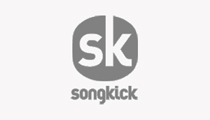This website uses cookies so that we can provide you with the best user experience possible. Cookie information is stored in your browser and performs functions such as recognising you when you return to our website and helping our team to understand which sections of the website you find most interesting and useful.
Business News Digital Live Business
Songkick and CrowdSurge merge
By Chris Cooke | Published on Friday 5 June 2015

Gig discovery service Songkick and direct-to-fan ticketing platform CrowdSurge yesterday announced that they were merging, getting in quick before the entire world become too entranced with BBC Music Day to notice such developments.
The merged company will use the Songkick brand, and will have $16 million pumped into it by a number of investors, including Warner Music owner Access Industries, an existing CrowdSurge backer.
Although primarily a gig listing and discovery service that links through to third-party ticket sellers, earning an affiliate fee when users then purchase, Songkick did move into selling tickets itself for some events. Seemingly because the mobile platforms of many other ticketing services were so rubbish the gig data company kept seeing transactions fall through.
Songkick confirmed to CMU that it will continue to work with the promoters that have been selling tickets via its app, but that its sales platform will now merge with that of CrowdSurge, which provides ticketing services to both promoters and, more notably, directly to artists (it calls itself the “largest artist-ticketing service in the world”). Songkick will continue to click through to other ticket sellers too, though CrowdSurge presumably hopes being directly integrated into the popular gig discovery service will make its ticket-selling platform more attractive.
In a blog post announcing the merger, Songkick said it and CrowdSurge were united in trying to help the live music industry sell as many tickets as possible. Noting that the live industry had boomed in the last two decades, Songkick co-founder Ian Hogarth wrote: “There is still a huge problem at the heart of the concert industry: 50% of concert tickets go unsold. That’s crazy! The average show is half empty”.
He went on: “Despite the growth in music consumption and discovery spurred by services like YouTube, Spotify, Pandora and iTunes, our industry hasn’t seen this translate into better attendance rates. While the world around us hurtles ahead, the live industry shuffles forward. We need a more open, more innovative and a more artist and fan-centric approach”.
Songkick is already tackling this issue, Hogarth said. “It’s been said time and time again that the biggest reason that concerts don’t sell out is that fans were unaware they were taking place. Songkick solves that problem by listing all the world’s concerts in one app – and sending fans personalised alerts when artists they stream on digital music services announce a nearby show”.
And CrowdSurge, he says, are also part of this mission. “CrowdSurge has been tackling this same problem by partnering directly with artists, helping artists to engage their vast online audiences around ticket sales”. Artists who successfully build online direct-to-fan businesses should be able to sell more tickets, the logic goes, if they better utilise their engaged fanbase, in both planning and promoting shows.
Which all sounds like fun. Though the direct-ticketing and direct-to-fan sectors are both becoming pretty crowded, and mainly with technology providers rather than firms to help artists actually manage their direct-to-fan businesses. But Songkick enjoys a particularly high profile in this space, while CrowdSurge has an impressive existing client base, so there is plenty of potential here.
Though the predictable “Songkick set to take on Ticketmaster” line – which, to be fair, doesn’t come from the companies themselves – ignores the hold traditional big players in ticketing have, over and above Ticketmaster being part of Live Nation, a massive player in both tour promotion and artist management.
And that hold is cash flow, and the advancing big ticketing firms do to promoters in return for exclusivity. Meaning large scale promoters need to balance the lure of better technology and data with the need for upfront cash. And $16 million in new investment won’t let SongSurge compete in that particular space.
Still, it’s an interesting merger all the same. Let’s give it more consideration once all the BBC Music Day celebrations are out of the way.





